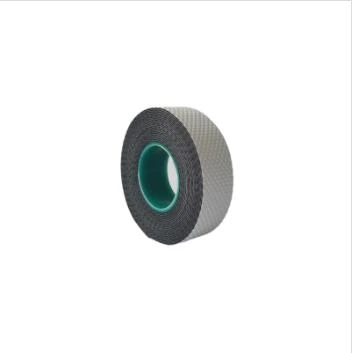The Importance of Electrical Insulation Cotton Tape
Electrical insulation cotton tape is a crucial component in the field of electrical engineering and repair, serving both practical and safety purposes in a variety of applications. This specialized tape is designed to provide excellent insulation, mechanical protection, and adherence, making it an indispensable tool for electricians, engineers, and hobbyists alike. Its unique properties make it suitable for a wide range of uses, from household electrical repairs to complex industrial applications.
Composition and Features
Electrical insulation cotton tape is typically made from high-quality cotton fabric that is treated with a variety of insulating compounds. This treatment enhances the tape's dielectric strength, which is essential for preventing electrical leakage and avoiding shorts in electrical circuits. The fabric composition allows for a flexible yet durable tape that can conform to various surfaces and shapes, a feature that is particularly beneficial when working in confined spaces or around intricate wiring.
One of the standout features of electrical insulation cotton tape is its ability to withstand high temperatures. Most cotton tapes can operate effectively at temperatures reaching up to 105 degrees Celsius (221 degrees Fahrenheit) without losing their electrical insulating properties. This characteristic makes them ideal for applications involving heat-generating components or environments where temperature fluctuations are common.
Applications in Electrical Work
In the realm of electrical work, insulation is paramount. Electrical insulation cotton tape is extensively used for insulating wire splices, terminals, and connections. This application is crucial for ensuring that exposed wires do not come into contact with other conductive materials, which could result in short circuits or even electrical fires.
Moreover, the tape is valuable for color-coding electrical wires. Electricians often use different colored tapes to denote specific functions or voltages of wires, aiding in the organization and identification of wiring systems. This practice not only improves efficiency during installation and repairs but also enhances safety by reducing the chances of confusion or mistakes during future maintenance.
Advantages Over Other Insulation Materials
electrical insulation cotton tape

While there are numerous types of insulation materials available, electrical insulation cotton tape holds several advantages. Unlike plastic tapes, which can become brittle over time, cotton tapes maintain their flexibility and performance even after prolonged use. Additionally, the breathability of cotton helps prevent moisture buildup, a common issue with other types of insulation that can lead to deterioration and reduced effectiveness.
The eco-friendliness of cotton tape is another appealing feature. As society shifts towards sustainable practices, choosing natural materials whenever possible becomes essential. Cotton is a renewable resource, and using it in electrical applications reduces the reliance on synthetic materials that contribute to environmental degradation.
Best Practices for Use
To maximize the effectiveness of electrical insulation cotton tape, users should follow some best practices. First, ensure that the surface to which the tape will be applied is clean and free of dust, grease, and moisture. This preparation helps the tape adhere better, providing a stronger bond and improved insulative properties.
When applying the tape, it is recommended to wrap it tightly and smoothly. Overlapping layers can enhance insulation, but care should be taken not to over-wrap, as this can lead to excessive bulk and difficulties during reassembly or maintenance.
Lastly, users should always check the electrical ratings and temperature specifications before using the tape in critical applications to ensure it meets the necessary standards for safety and performance.
Conclusion
In conclusion, electrical insulation cotton tape is an essential tool in both professional and DIY electrical work. Its unique composition offers excellent insulation properties, temperature resistance, and flexibility, making it ideal for various applications. Whether used for simple household repairs, complex industrial wiring, or color-coding connections, this tape is an invaluable asset in ensuring safety and reliability in electrical systems. As the industry evolves, the continued use of high-quality materials like cotton will play a significant role in advancing electrical safety and sustainability.
-
The Versatility of Cloth Insulation TapeNewsApr.07,2025
-
The Power of Self Amalgamating Silicone TapeNewsApr.07,2025
-
The Importance of Weatherstrip Seal: Your Ultimate Protection SolutionNewsApr.07,2025
-
Tape Electrical Insulation: A Reliable Solution for Your Electrical NeedsNewsApr.07,2025
-
Discover the Wonders of Electrical Splicing TapeNewsApr.07,2025
-
Discover the Versatility of PVC Electrical TapeNewsApr.07,2025
